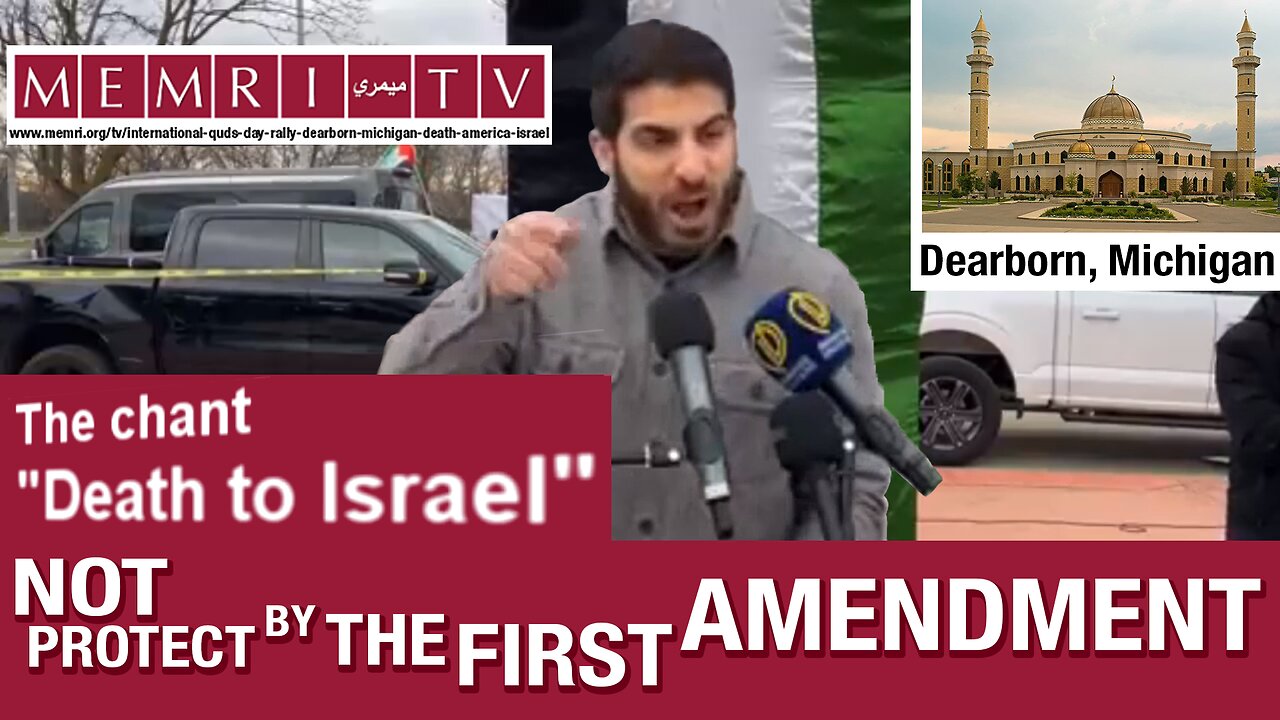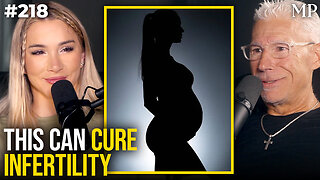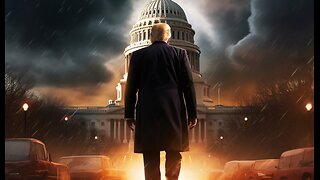Premium Only Content

Understand "Death to America" is Outside of Free Speech
The "Death to America" threat is a topic that elicits strong opinions and concerns from various perspectives, and it is essential to consider the context and potential consequences of such rhetoric.
First Amendment:
Congress shall make no law respecting an establishment of religion, or prohibiting the free exercise thereof, or abridging the freedom of speech, or of the press; or the right of the people peaceably to assemble, and to petition the Government for a redress of grievances.
The Supreme Court has cited three “reasons why threats of violence are outside the First Amendment” — “protecting individuals from the fear of violence, from the disruption that fear engenders, and from the possibility that the threatened violence will occur.” In Watts v. United States, however, the Court held that only “true” threats are outside ordinary First Amendment protections. The defendant in Watts expressed his opposition to the military draft at a public rally, saying, “If they ever make me carry a rifle, the first man I want to get in my sights is L.B.J.” He was convicted of violating a federal statute that prohibited “any threat to take the life of or to inflict bodily harm upon the President of the United States.” The Supreme Court reversed. Interpreting the statute “with the commands of the First Amendment clearly in mind,” the Court found that the defendant had not made a “true ‘threat,’” but had indulged in mere “political hyperbole.” In NAACP v. Claiborne Hardware Co., White merchants in Claiborne County, Mississippi, sued the NAACP to recover losses caused by a boycott by Black citizens of their businesses, and to enjoin future boycott activity. During the course of the boycott, NAACP Field Secretary Charles Evers told an audience of “black people that any ‘uncle toms’ who broke the boycott would ‘have their necks broken’ by their own people.” The Court acknowledged that this language “might have been understood as inviting an unlawful form of discipline or, at least, as intending to create a fear of violence.” Yet, no violence followed directly from Evers’ speeches, and the Court found that Evers’ “emotionally charged rhetoric did not transcend the bounds of protected speech set forth in Brandenburg. An advocate must be free to stimulate his audience with spontaneous and emotional appeals for unity and action in a common cause. When such appeals do not incite lawless action, they must be regarded as protected speech.” Although the Court held that, under Brandenburg, Evers’ speech did not constitute unprotected incitement of lawless action, the Court also cited Watts, thereby implying that Evers’ speech also did not constitute a “true threat.”
In a 2023 decision, Counterman v. Colorado, the Supreme Court held that, to convict a person of making true threats, a state must show that the speaker had a subjective understanding as to whether the person to whom his words were directed would perceive them as threatening. The Court explained the mens rea or mental state of recklessness would suffice for this showing, adding that, “A person acts recklessly in the most common formulations, when he ‘consciously disregard[s] a substantial [and unjustifiable] risk that the conduct will cause harm to another.’” In 2003’s Virginia v. Black, the Supreme Court considered a First Amendment challenge to a state law that banned cross burning carried out with the intent to intimidate. The Court held that, at least in theory, states could prohibit such cross-burnings as a “true threat.” Specifically, intimidation can be prohibited as “a type of true threat, where a speaker directs a threat to a person or group of persons with the intent of placing the victim in fear of bodily harm or death.” Cross burning could fall within this category of “intimidating speech,” given that the “history of cross burning in this country” demonstrated they were often “intended to create a pervasive fear in victims that they are a target of violence.” However, the Court concluded that the specific state law before it was unconstitutional insofar as it allowed the mere fact of cross-burning to provide prima facie evidence of the intent to intimidate, creating a chill on constitutionally protected speech. https://www.law.cornell.edu/constitution-conan/amendment-1/true-threats
#FirstAmendment #FreeSpeech #SupremeCourt
-
 7:09
7:09
Asia Sky Media
2 months agoHow do Chinese Americans feel about this Corona Virus? (Recorded on March 23, 2020)
541 -
 3:10:39
3:10:39
GoodLawgic
12 hours agoThe Following Program: GREAT Lawgic Joins To Discuss Domestic Terrorism in 2025
131K78 -
 1:05:48
1:05:48
Mikhaila Peterson
6 days agoDoctor On The Carnivore Diet and Fertility | Robert Kiltz EP 218
89.4K35 -
 2:46:06
2:46:06
DDayCobra
15 hours ago $21.17 earnedCobraCast 199
89.4K19 -
 2:07:27
2:07:27
TheSaltyCracker
14 hours agoTrump Tower Bombed w/ Cybertruck ReeEEeE Stream 01-01-25
200K443 -
 8:15:58
8:15:58
FreshandFit
21 hours agoElon Musk BETRAYAL & Mass Censorship On X
247K107 -
 2:25:43
2:25:43
Darkhorse Podcast
22 hours agoLooking Back and Looking Forward: The 258 Evolutionary Lens with Bret Weinstein and Heather Heying
235K221 -
 5:50:16
5:50:16
Pepkilla
20 hours agoRanked Warzone ~ Are we getting to platinum today or waaa
151K7 -
 9:15:09
9:15:09
BrancoFXDC
18 hours ago $9.88 earnedHAPPY NEW YEARS - Road to Platinum - Ranked Warzone
123K4 -
 5:53
5:53
SLS - Street League Skateboarding
5 days agoBraden Hoban’s San Diego Roots & Hometown Win | Kona Big Wave “Beyond The Ride” Part 2
124K14